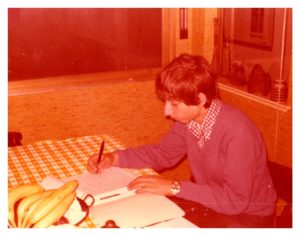My brother Tod, also a novelist, and I sat down with the good folks at Thrive Global for a long, and very detailed Q&A to discuss what it takes in terms of skill, experience, and dedication to sustain a successful writing career and write bestselling novels. Here’s an excerpt: 
What was the biggest challenge you faced in your journey to becoming a bestselling author? How did you overcome it?
Lee: I think it’s rejection and failure, which are inevitable in the writing business. Your manuscripts will be rejected again and again and again before they land a publisher. But some books simply won’t sell. Some of your published books will bomb and be savaged by reviewers. Not everything you write will be a winner or find the right audience. The key is not to become crippled by self-doubt and pain but to learn from the experience (Why was the manuscript rejected? Why did the book bomb?) and incorporate those lessons into your next book. The only way to overcome the failure is to keep writing.
Tod: Well, finding out what I was meant to write was a big part of it for me. When I was starting out, for some reason, I was averse to writing crime fiction and so I wrote these kind of quasi-literary books that even I wasn’t interested in reading. The public responded in kind! Once I finally decided to write crime fiction, everything sort of began to line up for me. But, too, as Lee said, self-doubt can be paralyzing. It’s odd. A coal miner isn’t paralyzed by self-doubt that prevents him or her from working, so talking about it as a challenge seems sort of silly in context. A job is a job, be it creative or physical. It’s what you do to make a living. I think once I began to think of writing as a job, as the thing that fed my family, these more ephemeral things began to fade away. Still, you have to write books people want to read.
You can find the entire interview here.
